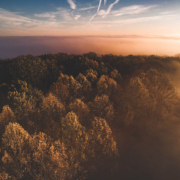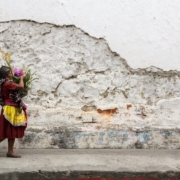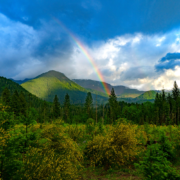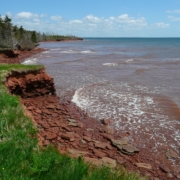Indigenous Peoples and the COP26 Decision
Indigenous peoples were excluded from decision making processes at COP26 including the negotiations regarding Article 6 of the Paris Agreement. At the same time, Indigenous peoples were acknowledged and recognized in the COP26 Decision (unedited version), also referred to as the Glasgow Climate Pact. What does acknowledgement and recognition of Indigenous peoples look like in the COP26 Decision and what is the overall impact for Indigenous peoples?
Indigenous peoples are mentioned in the COP 26 Decision, starting with the preamble which notes, “Recognizing the important role of indigenous peoples, local communities and civil society, including youth and children, in addressing and responding to climate change, and highlighting the urgent need for multilevel and cooperative action…” and that parties acknowledge “their respective obligations on human rights, the right to health, the rights of indigenous peoples.”
In addition, the decision refers to Indigenous peoples in several sections, for signatories to:
- Acknowledge “the important role of a broad range of stakeholders at the local, national and regional level, including indigenous peoples and local communities, in averting, minimizing and addressing loss and damage associated with the adverse effects of climate change.” (Section VI Loss and Damage).
- Emphasize “the important role of indigenous peoples’ and local communities’ culture and knowledge in effective action on climate change, and urges Parties to actively involve indigenous peoples and local communities in designing and implementing climate action and to engage with the second three-year workplan for implementing the functions of the Local Communities and Indigenous Peoples Platform, for 2022–2024.”
In an article for The Guardian, Victoria Tauli-Corpuz, former UN Special Rapporteur on the rights of Indigenous Peoples and director of Tebtebba Foundation (Indigenous Peoples’ International Centre for Policy Research and Education), notes that too many disputes still linger between countries of the Global South and those of the Global North such that stipulations in the Paris Agreement are being implemented too slowly. Article 6 of the Paris Agreement focuses on carbon markets (i.e., the purchase and sale of credits by companies toward specific amounts of CO2 emissions). At COP26, Indigenous groups wanted to be included in the design and implementation of carbon offsets, have their rights protected, and be involved in setting up an “international grievance mechanism” should Indigenous “rights be violated in the implementation of Article 6.” Meanwhile, Indigenous knowledge and insight were excluded from Article 6 negotiations despite the oft-cited statistic that 80% of Earth’s biodiversity is found on Indigenous lands.
The exclusion of Indigenous peoples from decision making at COP26 is, by all accounts, a disappointment. Indigenous rights and title remain a priority among Indigenous land defenders as they combat climate change. As Tauli-Corpuz states in The Guardian, “We indigenous peoples will continue to do our duties and fulfil our obligations to Mother Earth and to our future generations. But we will be able to these better if our collective rights to our lands, territories and resources, to culture and to our traditional knowledge, practices and innovations are respected and protected.”
By Leela Viswanathan
(Photo Credit: Jonatan Pie, Unsplash)




 Scott Umstattd, Unsplash
Scott Umstattd, Unsplash


 Scott Umstattd, Unsplash
Scott Umstattd, Unsplash